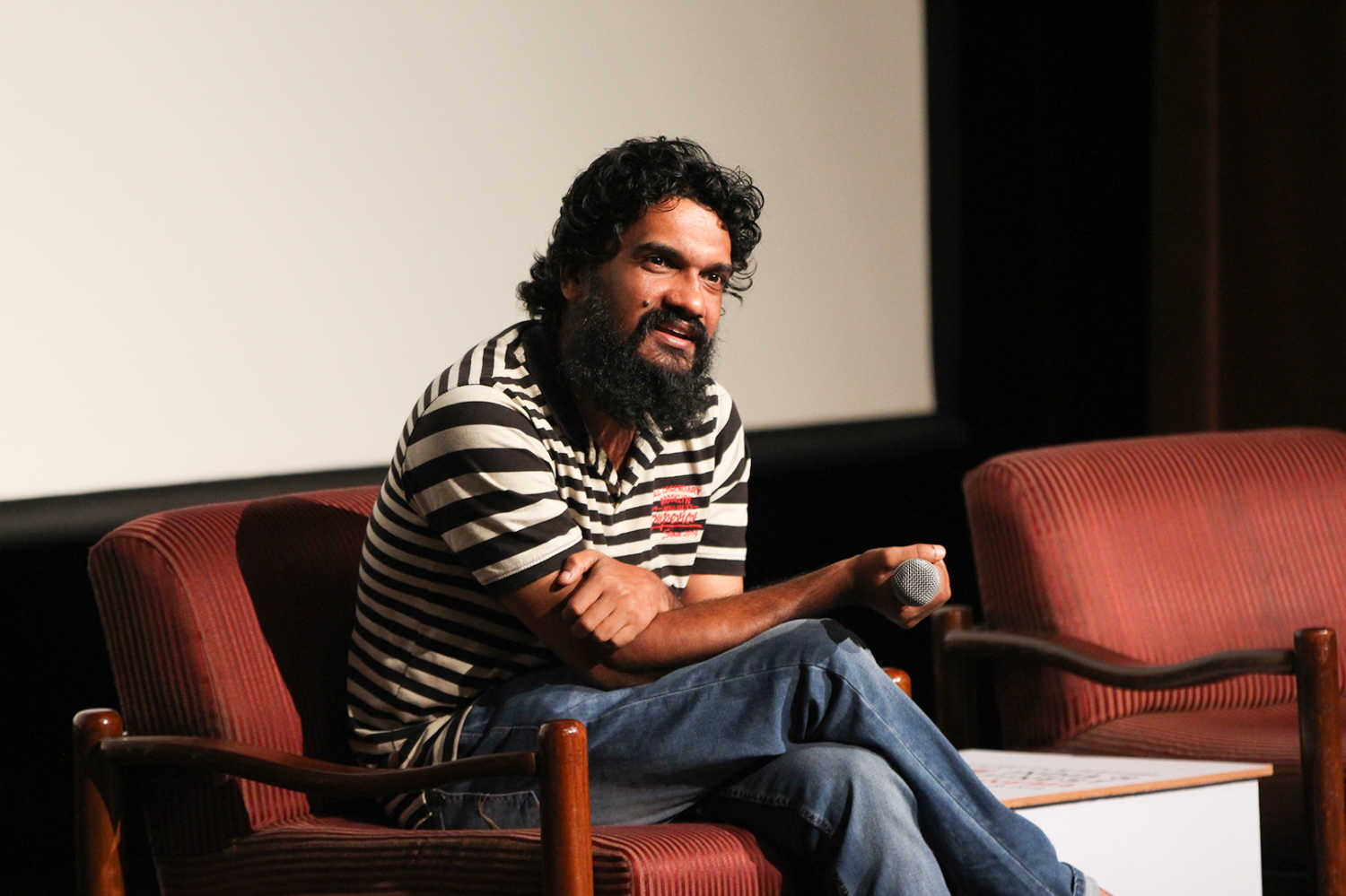Filmmaker Sanal Kumar, a co-founder of the Kazhcha-Niv Indie Film Festival, discusses his vision for the festival as well as some of its shortcomings.
We come together for joy and put the Kazhcha indie festival together for pleasure: Sanal K Sasidharan
Trivandrum - 10 Dec 2019 9:00 IST


Sukhpreet Kahlon
The 3rd Kazhcha-Niv Indie Film Fest was held at the Lenin Balawadi here from 6 December through 9 December and featured some exciting films from across the country. In addition to film screenings, the festival also featured its usual panel discussions and interactive sessions between artists and the audience. This year, the festival introduced an award for Best Film.
A festival with a lot of heart, Kazhcha-Niv Indie Film Festival has been supported enthusiastically by the audience, with footfalls growing every year. The festival charges a meagre registration fee of Re1 and welcomes filmmakers whose films have largely been ignored by bigger, more established festivals across the country.
In an exclusive interview with Cinestaan.com, filmmaker Sanal Kumar Sasidharan, one of the co-founders and a driving force of the Kazhcha Film Forum, speaks about the beginnings of the festival rooted in protest and his hopes for the future. Excerpts:
The Kazhcha film festival started in the spirit of protest and rebellion. Do you think that reason is still valid?
Absolutely! It is more than valid as the situation is getting worse every year. Maybe it is the basic problem of perception of films because the independent movement has made a lot of changes in the narrative and aesthetic style [of films] and is trying to bring up a lot of subjects that commercial cinema is unwilling to touch. But the older directors, people from the fraternity who become [part of] the jury, are deputed to select films from the new wave, so they are not necessarily getting the idea [what the films are trying to say], so they simply turn it down, not giving an avenue to present these kind of new creations.
This is a dangerous thing because they are simply looking for films that back their kind of ideology. So a new kind of wave is being marginalized. There is evidence of this. A big festival is happening right here [referring to the government-run International Film Festival of Kerala] and there is huge money and they can support independent cinema, distribution set-ups for independent cinema, they can do a lot of changes. But what we are doing inside the margins, outside their purview, is without any money. If we can do something, they can do it in a way that is 100 times better.
I want to ask about your selection criteria, especially because this is a festival that is inclusive and promotes films that are largely ignored by other festivals. This year, there are no films by woman filmmakers. I know that it is not deliberate, but maybe you need to widen your call for submissions so that you get a larger selection to choose from?
Exactly. We have a lot of shortcomings. One is that we have a very small crew and it is a disorganized crew. We come together as a matter of joy and put the festival together for our pleasure.
This year, there was a lot of confusion and we got organized late. We were actually trying to change the festival scenario. We were planning to set it up as a camping festival in a remote place so that a lot of people can come and get together for three days. Just like this [festival], but in an isolated place — a gypsy festival!
But we couldn’t fulfil that this year. We were also planning to shift the dates as we have our own identity and didn’t want to continue as a protest festival. We gained our identity out of our love for the festival. So we announced the call in a hurry and people sent their films. Anyway, we need to make some corrections.
You also introduced a competition this year to encourage young filmmakers.
Yes, we don’t know how much we can offer but we were planning to give whatever money we have left at the end of the festival as a cash prize. Independent filmmakers are all living on a very tight budget because we don’t make money. Even though we make films that get a lot of support from viewers, so maybe we get fame. So this amount may be small now but we hope that we grow and can offer more support.
Where do you see the festival five years from now?
Ideally, we were planning to place this festival in a remote area, in a village, where we can create our own atmosphere. Personally, I think the time is changing and no good will come from protesting outside. The protest has to be within. When I was protesting for Sexy Durga (2018) outside IFFI [the International Film Festival of India 2017] holding a placard, I think now that is not at all possible. This is the reality and we cannot do that anymore.
This year we have introduced a change where we want the jury to observe the conversations taking place. The jury is also made up of people, so when a film is discussed, they will understand if a film has some merit and whether what they thought was right or not. So there should be a kind of camaraderie.
In indie films, people should come and watch films together, criticize, and there must be an open mind to accept the criticism, only then will it grow. Otherwise no one shows their films to one another. This situation should change. That is also the idea behind changing the way the jury participates. Usually, juries do not take part in any discussion.
Related topics
Kazhcha Indie Film Festival

